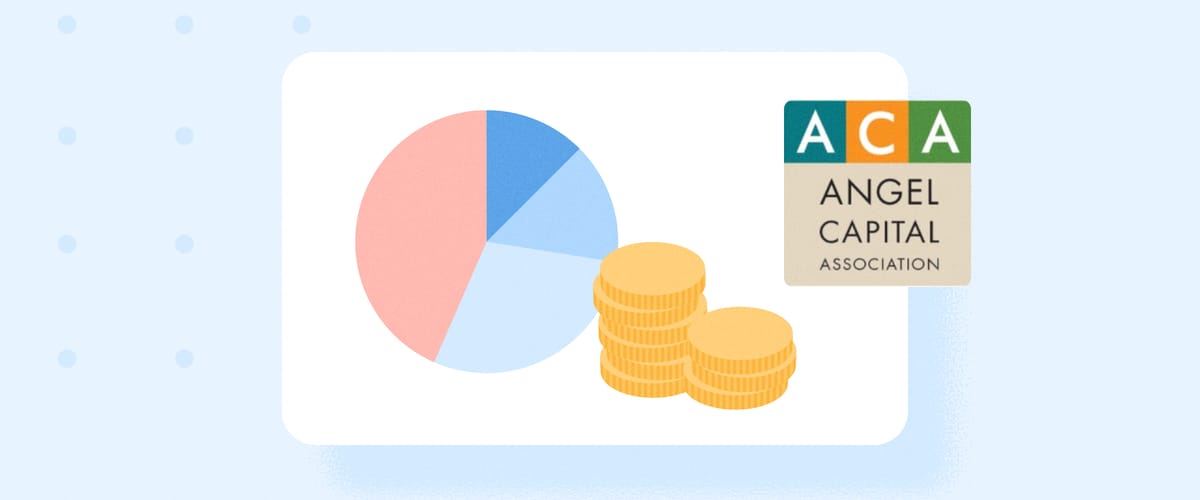We’ve got good news - angel investing is growing more popular! It is getting increasingly more attractive to the next generation of high-net-worth individuals who have often earned their wealth by being entrepreneurs, understand the way early-stage scene works and have a whole new perspective on the act of investing.
In the light of this, Dealum’s co-founder and angel investor Rain Kivisik concludes that angel investing is in the process of maturing even though the full potential of angel investing is still untapped. With more people joining the angel community, the knowledge exchange and cooperation become increasingly more important. What lies ahead in the angel investing future? This is where he believes we’re heading.
Ecosystem participants evolve
Angel investing is not an isolated world, instead, it is part of a larger startup ecosystem with many other players. The roles and expectations of these participants change over time and so does the impact they have on each other.
Angel investors
As mentioned, the startup ecosystem is growing fast and is continuously producing new individuals interested in becoming an angel investor. Many of them realise that they could use their knowledge and network in specific fields to give back to the community, helping entrepreneurs flourish and bold ideas come to life. Other mainstream investment instruments may be less risky, but they lack the feeling of purpose - there’s little meaning to them, except for making some profit. Because angel investing is becoming more accessible to people and is seen more as a developed and matured investment segment, more education and standardisation of processes are needed.
Experienced and lead angel investors
Angel investors often start without any knowledge about investing and simply learn by doing. This adventure can be exciting but it’s not very efficient. In larger groups, professional lead angels have developed over time, who can help fellow angels make specific deals and also can teach them a thing or two about the life of a business angel. The role is not a new one and is well known, but angels don’t always appreciate the value it brings to everyone. This is gradually changing and one way or another lead angels must be compensated for their work. For the novice angel following an experienced lead means faster learning and better financial decisions from the beginning therefore it is important to recognise the “wise man” role in the ecosystem.
Business angel network managers
In our opinion, network manager’s role is crucial in the ecosystem - they keep groups running with hard, systematic daily work. There is a lot that can be done more efficiently and Dealum’s goal is to reduce some of their load. Once there is less administrative work, the managers are able to focus more on relationships with angels and other groups. Relationship-building is a critical task that cannot be done by software or artificial intelligence and in the future, we see this will differentiate outstanding groups from the less successful ones.
Founders
Angel groups are the first trusted organisation founders go to in search of support and funding. While it makes sense as the first step it is usually also the most confusing and time-consuming, compared to talking to potential investors directly. Standardisation of processes and transparency are the key developments in the angel investing future which can be delivered with a streamlined and digitalised process and is easy for the founder to follow. We also have high hopes on the lead angel investor role discussed above that can help make the fundraising a great experience for the founders.
VC, corporates, funds
The latest trend with venture capital is that year by year, they move to the earlier phases of the company. The benefits are clear - it’s better to get on board as early as possible to be able to ensure they do not miss good deals in the future. A-rounds of great companies are usually very competitive and deals are often made without being openly published which means getting hold of them can be difficult. Cooperation can also benefit angel networks as involvement of venture capital early on means it is easier to secure future funding for the company in later stages - a VC who has been on board earlier and has seen company’s progress and potential is able to make decisions faster. Through specific interfaces, giving VCs and funds access to deals in an angel network’s pipeline is not difficult.
The list above is in no means conclusive and omits the very important role of, for example, incubators and accelerators. But that is another story, worthy of a separate post.
Networks reorganise
In the future, angel investing acts as a decentralised network of networks. Each such network is a group of self-sustained and organised angel investors. Some of them are for-profit, some non-profit - similar to the way business angel networks (BANs) operate today. It seems that the ideal size for BANs is around 100-300 members. If it is less than that it’s hard to manage a self-sustainable organisation, but larger ones miss personal relationships.
Most BANs are location-based today and it’s an excellent starting point. However, we see that geographically limited organisations struggle with the quality of deal flow. Most entrepreneurs are also looking not only for funds in a reasonable time but also for expertise and network in specific fields. It is becoming more and more popular to create industry-based focus groups. Such groups are usually formed between several BANs and allow them to gather expertise in a very specific field. In addition to creating additional value for the early-stage companies, it will also increase their chances of closing a round.
The trend we see is that when angel groups need to keep their size reasonable to enjoy trust and relationships they may lack the capacity to fill out a full funding round. Therefore it is important for them to share the deal flow with other trusted groups and investors. Deal sharing is complicated, labour-intensive and time-consuming and it lacks a streamlined process. An online tool to explore other networks, find common interests, and share the deal flow will help to speed up the process of creating links between networks which will take the angel community to the next level.
But tools alone are not sufficient to close a successful cross-group funding round. The startup ecosystem is built on trust and relationships and these are becoming even more critical in the future as more people join the arena and deal sharing becomes a daily affair. We see that lead angels can be an answer to this challenge - they are able to build up relationships and promote the deal to other members in other groups. This way deals that are shared are not anymore as much about the company but rather about who is recommending them.
Digital transformation is here to stay
The global lock-down means there is a drive to move as many processes and activities as possible to the virtual environment. Digitalisation is also relevant to angel investors and luckily there are platforms available that can support and help angels groups in this. A well-chosen software will help streamline and standardise the processes not only inside groups but across groups and borders. As a result, it will open significantly more potential and increase the value angel groups can provide.
These platform providers can be divided into two main types:
- Tools to manage everyday work and processes, deal flow, events, portfolio etc of an investor group. The house-keeping activity is usually not regulated and can be offered in a cost-efficient and universal way. Dealum, for example, falls into this category.
- Tools to close deals. The process of closing is very specific to the market due to regulations and transactions involved. Although investors can always prepare and sign a pile of papers, soon it will be much easier and more beneficial to make deals online. Several platforms are available for this offering various services based on closing needs and market requirements.
In the future, we see both types of platforms and tools are closely connected to each other allowing investors to choose how to manage their deal flow from the beginning to the end.
Exciting times ahead
When it comes to angel investing, we believe there are exciting times ahead. In the future, online tools will take care of the tedious and repetitive work so that the managers can focus on building and maintaining relationships. By building connections between different angel groups around the world, the angel community will have the potential to become a recognised and matured financial instrument holding an additional meaning for investors - something that global funds and stock market cannot offer. Angel investor is soon a serious profession rather than a fun sidekick and the angel groups must tune their processes to align with the expectations of their members.
Here at Dealum we are up for the challenge and continue to grow so we can help angels rock the startup world.
Curious to learn more about angel group operations?
Unlock the secrets to running a successful investor group with our free in-depth guidebook “Best Practices of Angel Investing”
Read now








